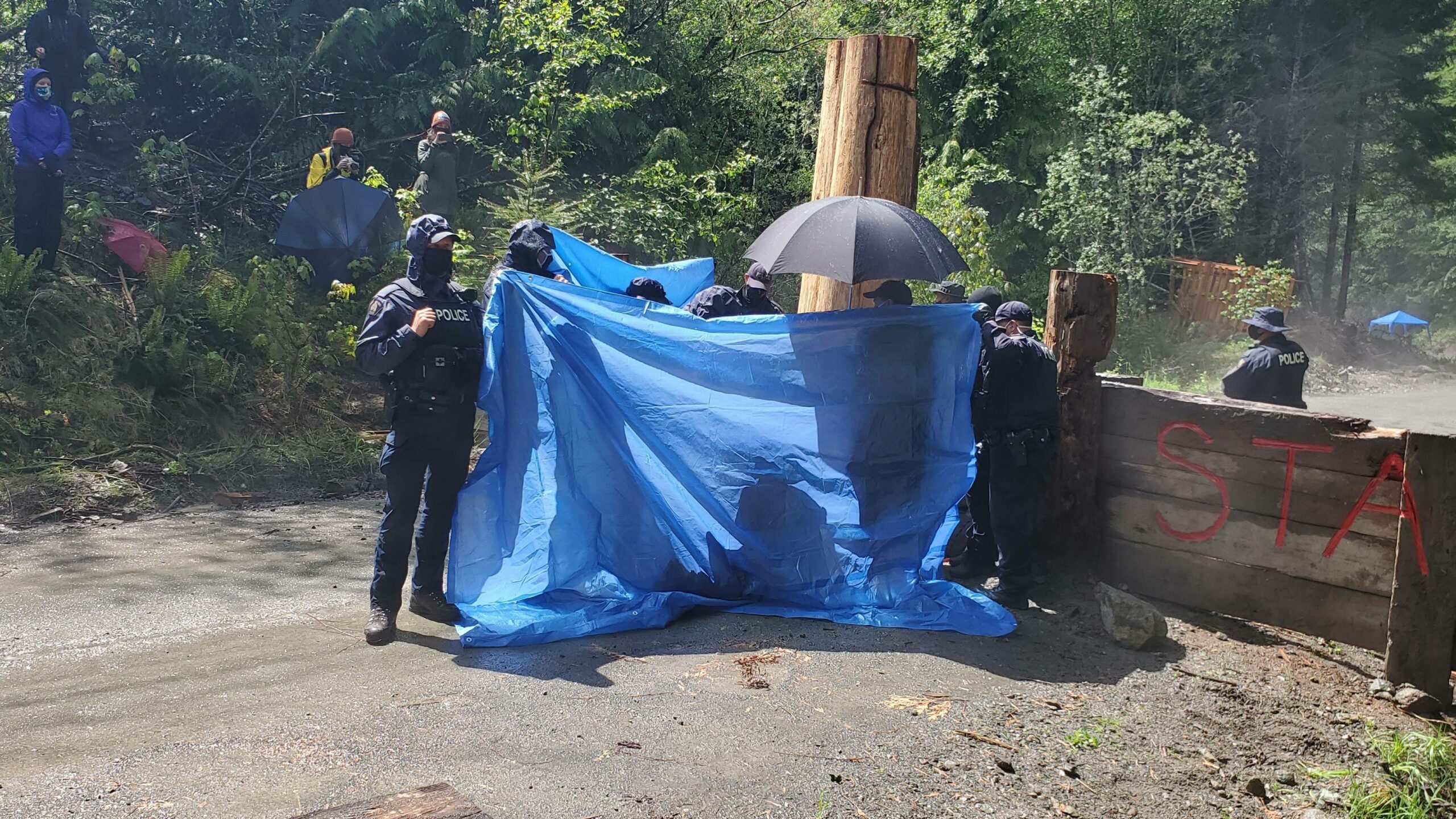“Every day is a new day with new excuses from the RCMP about why access is limited,” says Brent Jolly, president of the Canadian Association of Journalists. “Enough is enough.”
A coalition of media outlets and press freedom groups is filing an application in B.C. Supreme Court today, asking a judge to order the RCMP to provide journalists with reasonable access to police enforcement actions taking place in southwest Vancouver Island near Port Renfrew, B.C.
Parties to the application include the Canadian Association of Journalists, Ricochet Media, Capital Daily Victoria, The Narwhal, Canada’s National Observer, APTN, The Discourse, IndigiNews and Canadian Journalists for Free Expression.
This unprecedented collective action on behalf of the Canadian news industry is the culmination of eight years of the national police force using the same playbook to frustrate and restrict media access to enforcement actions in isolated areas.
The Justin Brake precedent at the Newfoundland and Labrador Court of Appeal established that journalists could not be considered in violation of an injunction when they go into an injunction zone to report on issues of public interest, and police cannot use injunctions as an excuse to restrict media access. A report of the RCMP’s own oversight body, the Civilian Review and Complaints Commission, arrived at a similar conclusion, finding that the use of broad exclusion zones was outside the authority of the RCMP and raising concerns over their use to interfere with working journalists.
Over the past week of RCMP activities on Vancouver Island, where police are enforcing a court injunction against protesters blockading logging roads to protect old-growth forests, journalists have been refused access at police checkpoints dozens of times. When they have gained access, after repeated attempts and legal threats, they have been detained and held up to 150 feet away from arrests (over 60 arrests have taken place to date) and chaperoned at all times by RCMP minders, compromising their ability to freely collect information and conduct private interviews. The RCMP have even gone so far as to hold up tarps to obstruct journalists’ view of arrests, and tell journalists they can’t go to the bathroom without permission and an accompanying officer.
“The RCMP have been using broad exclusion zones to interfere with members of the media for at least eight years, across multiple provinces,” said Ethan Cox, an editor with Ricochet Media. “Legal precedent and the RCMP’s own oversight body say doing so is beyond the authority of the force, but it keeps happening. What’s at stake here is nothing less than the public’s right to know.”
The RCMP claim that these draconian restrictions on media access are necessary for “public safety.” However, RCMP enforcement during the largest campaign of mass civil disobedience in Canadian history at Clayoquot Sound in 1993, a nearly identical situation of blockades on logging roads, happened without restrictions on media, and police forces in big cities routinely enforce injunctions and arrest protesters engaged in civil disobedience without restricting press access in any way.
Last year, as the RCMP was using an exclusion zone to deny media access to the site of police raids on Indigenous land defenders on Wet’suwet’en territory, protesters in Vancouver blocked the entrance to the city’s port. The Vancouver Police Department moved in and arrested the protesters without incident. There were no restrictions on media, and photographers were within a few feet of the arrests. Ricochet is pleased to join a broad coalition of Canadian outlets acting collectively to defend the rights of our journalists.
Since at least 2013, the RCMP have acted as though injunctions that restrain a specific behaviour (e.g., blocking roadways) in a large geographic area give them the power to keep the public and media out of that area. These exclusion zones are not mentioned in the injunctions, and have never been authorized by a court.
As applied to working journalists, the legality of this tactic has been repudiated by the courts and the RCMP’s own oversight body.
Last week, the CAJ issued a release calling on the courts to limit RCMP power when issuing injunctions. Yesterday the parties to this action sent a letter to the force outlining our concerns and warning that we would go to court if they were not addressed. The RCMP have yet to respond to that letter.
Ricochet is pleased to join a broad coalition of Canadian outlets acting collectively to defend the rights of our journalists, and by extension the right of the public to be informed on matters of significant public interest.
As an emergency application, this matter should be heard by the courts within two working days. With dozens of arrests reported yesterday during a raid that no media were allowed to attend, and escalating enforcement actions by the RCMP expected this week, we are asking the court to act with urgency and safeguard the rights of journalists without delay.
This post was originally published by Ricochet and appears here with permission.

